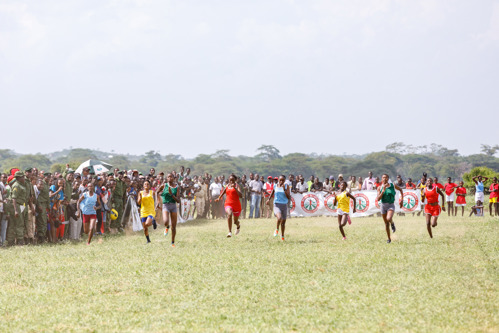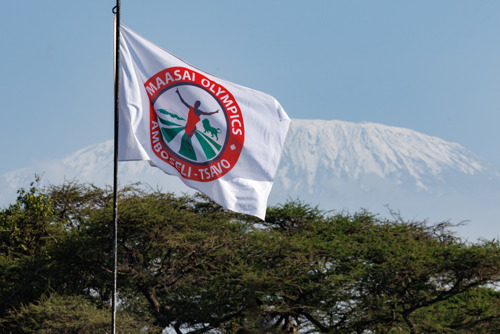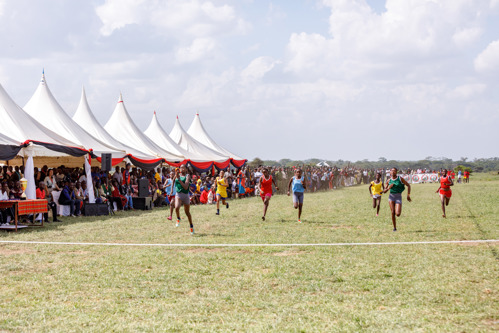
Empowering women through sport: the Maasai Olympics
Originally created as a way for young Maasai men to prove their strength and athleticism, the Maasai Olympics is now a platform for both men and women to showcase their skills and challenge traditional gender roles. This transformation, supported by Chester Zoo and the Big Life Foundation, is not just about sport—it’s about empowering women, preserving wildlife, and changing cultural norms for the better.
From lion hunting to empowering women: the birth of the Maasai Olympics
In 2008, a group of Maasai elders, known as the Menye Layiok (cultural fathers), proposed a revolutionary change to Big Life Foundation. They suggested replacing the traditional lion hunts—used as a rite of passage for young men—with a sporting competition that would test the strength, athleticism, and determination of Maasai youth. This led to the creation of the Maasai Olympics, a transformative event that has evolved over the years to include women. Chester Zoo has been a proud sponsor of the Maasai Olympics, supporting its mission to both protect wildlife and empower women in the Maasai community.

A new era for the games
The Maasai Olympics began in 2012 as an event for men only, focusing on traditional Maasai warrior skills. The aim was to provide young men a chance to prove themselves to their community and attract the attention of potential partners. However, as the competition evolved, so did its inclusivity. In December 2024, the most recent Maasai Olympics welcomed 160 competitors—40 of whom were women. These women ran in the 100m and 1,500m foot races, proving that sport is a powerful tool for gender equality.

I want to become like Mary Moraa, a famous Kenyan athlete. The Maasai Olympics gives women like me a moment to show my talents and it gives me hope for more opportunities in sport.
Valentine Naisimoi - 2024 athlete
Guardians of the pride: protect Africa’s lions
Since the Maasai Olympics began, there has been a cultural shift away from using the traditional lion hunt—known as "Olamayio"—as a rite of passage. This change has had a remarkable impact on both the Maasai community and the wildlife in the Amboseli region, one of Africa’s richest wildlife areas. Once home to only about 20 lions in the early 2000s, the lion population in Amboseli has grown to an impressive 250 individuals. This recovery is a testament to the power of cultural change and the positive effects of the Maasai Olympics in promoting wildlife conservation.

Women as conservation advocates: the future of the Maasai Olympics
At Chester Zoo, we are proud to partner with Big Life Foundation in recognising the incredible potential of women as advocates for conservation. By including women in the Maasai Olympics, we are not only empowering them but also encouraging young men to choose sport over lion hunting, further contributing to the protection of Africa’s iconic wildlife.
We need more girls to participate. When I go around to education meetings, many girls ask me why they’re not involved in the programme.
Samuel Kaanki, Big Life’s Maasai Olympics coordinator
The success of the Maasai Olympics, with its growing participation of women, is just the beginning. The upcoming 2026 games will see even more opportunities for women to compete, creating a more inclusive event that celebrates both gender equality and conservation.
On this International Women’s Day, we honour the women of the Maasai community and the incredible strides they are making in sport, conservation, and cultural change. Their courage and resilience inspire us all.